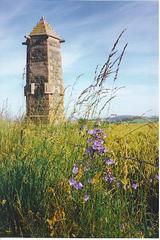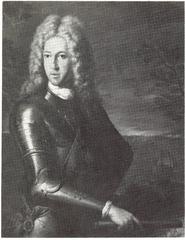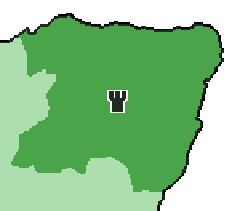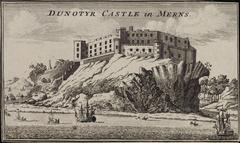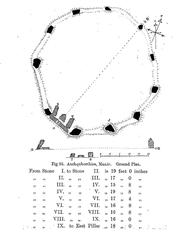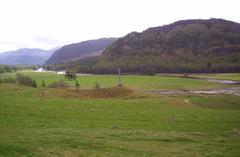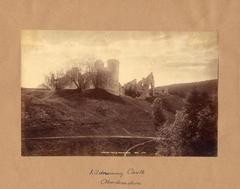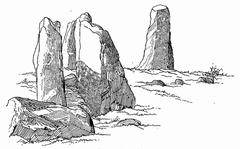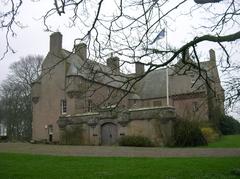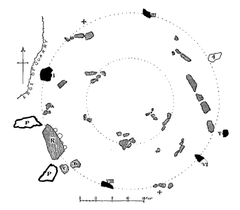
Abergeldie Castle: Visiting Hours, Tickets, and Historical Sites in Ballater, United Kingdom
Date: 04/07/2025
Introduction
Abergeldie Castle, nestled on the picturesque banks of the River Dee in Royal Deeside, Aberdeenshire, stands as a remarkable symbol of Scotland’s historical richness and architectural grandeur. Constructed in the mid-16th century, likely by Sir Alexander Gordon of Midmar, this iconic tower house has witnessed clan politics, royal allegiances, and national upheavals over the centuries (Britain Express). Though now a private residence, its storied exterior and scenic setting near Ballater draw visitors seeking to immerse themselves in Aberdeenshire’s cultural landscape and the broader Royal Deeside region (Historic Environment Scotland; Scottish Places Gazetteer). This guide provides a comprehensive overview of Abergeldie Castle’s origins, architectural highlights, historical milestones, visitor information, travel tips, and nearby attractions.
Historical Overview
Origins and Early Construction
Abergeldie Castle was built in the mid-16th century, probably by Sir Alexander Gordon of Midmar, who later became Earl of Huntly (Britain Express). The Gordons, a powerful family in northeast Scotland, strategically located the castle beside the River Dee for both defense and access to vital routes. The original structure, a classic Scottish tower house, featured thick granite walls, narrow windows, and defensive elements reflecting the Scottish Renaissance’s transition from purely military fortresses to more comfortable noble residences.
The Gordons and Regional Influence
Throughout the 16th and 17th centuries, Abergeldie Castle was both a family home and a symbol of the Gordons’ status. Its robust construction and strategic location made it invaluable during unrest, such as the Wars of the Three Kingdoms and the Jacobite risings. The Gordons’ loyalty to the Stuart monarchy influenced the castle’s fortunes and role in regional history.
Jacobite Uprisings and Military Use
The castle’s most notable historical moment came during the 1715 Jacobite uprising, when it served as a royal garrison (Britain Express). Defensive features, including thick walls and an elevated position, made it suitable for military use. The aftermath of the uprisings brought significant changes in ownership and use, as the British government sought to suppress further rebellion.
Victorian Era and Royal Connections
Abergeldie Castle entered a new era in the 19th century when it was leased to the British royal family, beginning with Prince Albert in 1848 (Britain Express). Its proximity to Balmoral Castle, purchased by Queen Victoria and Prince Albert in 1852, made it an attractive residence for royal guests. Victorian-era modifications introduced Italianate influences, such as a Venetian window and an ogee-roofed belfry, while the castle retained its historic character.
Recent History and Preservation
Still privately owned, Abergeldie Castle was threatened by severe flooding in 2016, prompting emergency stabilization efforts (Scottish Castles Association; BBC News). This highlighted the ongoing challenges of preserving such historic buildings in the face of environmental change.
Architectural Features
Abergeldie Castle is an exemplary Scottish tower house, with a four-storey rectangular plan, corbelled turrets, crow-stepped gables, and an iron yett (hinged iron gate). The harled (lime-rendered) exterior is finished with a pink hue, and original defensive features, including slit windows and battlements, are still visible (Historic Environment Scotland).
Notable Features:
- Stair Tower & Belfry: A round stair tower at the southwest corner, capped by an Italianate ogee-roofed belfry, added in the 19th century.
- Windows: Timber sash and case windows, including a distinctive Venetian window.
- Ancillary Buildings: Detached cottages, a game larder, and a traditional cheese press in the garden.
- Interior: Vaulted ground floors, large fireplaces, and a pit prison under the stair, all largely inaccessible to the public.
Folklore and Local Identity
Abergeldie Castle is intertwined with local folklore, including tales of hauntings and mysterious occurrences (Wikipedia). Its grounds feature an ancient standing stone, indicating habitation dating back millennia (Kids Kiddle). The castle’s resilience through wars, floods, and social change is a source of community pride and a focal point for local storytelling traditions.
Visitor Information
Visiting Hours & Tickets
Abergeldie Castle is a private residence and not generally open to the public. There are no regular interior tours or ticket sales. Visitors can view and photograph the castle from public roads and footpaths along the River Dee but must respect all property boundaries.
Special Events
Occasionally, heritage groups or local organizations may arrange special events or guided tours. Information on such events can be found through local tourism websites or the Ballater Tourist Information Centre (Visit Ballater).
Best Times to Visit
The best months to visit are late spring to early autumn (May–September), when the weather is most favorable and nearby attractions are open (VisitScotland).
Location & Accessibility
Abergeldie Castle is about two miles east of Ballater, close to Balmoral Castle and set within the scenic landscapes of Cairngorms National Park (The Castle Guide). Public transport is limited; private car hire is recommended for exploring the region.
Travel Tips
- Parking: Available near estate entrances off public roads.
- Safety: The River Dee is fast-flowing—stay on marked paths and avoid riverbanks after rain.
- Accessibility: The terrain is uneven and not suitable for wheelchairs; walking shoes recommended.
- Weather: Prepare for rapid changes—bring waterproofs and layered clothing.
Nearby Attractions
- Balmoral Castle: Open to visitors April–July.
- Braemar Castle: Community-run with guided tours in summer.
- Crathie Church: Historic church with royal ties.
- Craigendarroch Oakwoods & Loch Muick: Scenic walks and wildlife.
- Ballater Village: Shops, restaurants, and the Old Royal Station.
Accommodation
Abergeldie Castle offers no public accommodation, but Ballater village features a variety of hotels, guesthouses, and self-catering cottages (My Voyage Scotland; Scotland.org.uk).
Practical Tips
- Respect private property: Do not enter the estate beyond public access points.
- Follow the Scottish Outdoor Access Code: Take litter home and respect wildlife.
- Check local event calendars: For special events or heritage open days at nearby sites.
Frequently Asked Questions (FAQ)
Can I tour Abergeldie Castle?
No, it is a private residence. Viewing is possible from public roads and footpaths only.
Are tickets required?
No tickets are needed for exterior viewing, as there are no official tours.
What’s the best time to visit?
Late spring to early autumn offers the best weather and access to nearby sites.
Is the castle accessible for people with disabilities?
The uneven terrain may pose difficulties; most viewing points are accessible by car, but paths can be rough.
Are guided tours available?
Rarely, and usually only during special heritage events—check locally for announcements.
Preservation and Community Value
Abergeldie Castle’s continued preservation, especially following the 2016 flooding threat, underscores the community’s commitment to safeguarding its heritage (Scottish Castles Association). Its ongoing story, from Gordon stronghold to royal retreat, embodies the enduring spirit of Aberdeenshire.
Visuals and Media
Alt text: Abergeldie Castle, historic Scottish tower house beside the River Dee in Aberdeenshire
For virtual exploration and interactive maps, visit VisitScotland’s Royal Deeside page.
Summary and Planning Tips
Abergeldie Castle is a testament to Scotland’s layered history, architectural evolution, and connections to both the Gordon family and British royalty (Britain Express; The Castle Guide). Though not open for public tours, its striking exterior, scenic location, and proximity to Royal Deeside attractions make it a must-see for history lovers. Pair your visit with trips to Balmoral, Braemar, and Crathes Castles for a complete Aberdeenshire experience. Always check current conditions and events, and respect the castle’s private status for a responsible and enjoyable visit (Visit Ballater; Audiala).
References & Further Reading
- Abergeldie Castle Visiting Hours, Tickets, and History: Explore Aberdeenshire’s Historic Landmark, Britain Express
- Abergeldie Castle: Visiting Hours, Tickets, and Architectural Highlights in Aberdeenshire, Historic Environment Scotland
- Visiting Abergeldie Castle: History, Tickets, and Travel Tips, Scottish Places Gazetteer
- Abergeldie Castle Visitor Guide: Visiting Hours, Tickets & Nearby Attractions in Aberdeenshire, The Castle Guide
- Abergeldie Castle Preservation Efforts, Scottish Castles Association
- Royal Deeside Visitor Information, VisitScotland
- Visit Ballater Tourism Guide, Visit Ballater
- Audiala App for Scottish Heritage Travel Tips, Audiala
- BBC News
- Kids Kiddle
- Wikipedia
- Scotland.org.uk
- My Voyage Scotland
- Love from Scotland
For the latest travel tips and heritage news, download the Audiala app and follow us on social media.



